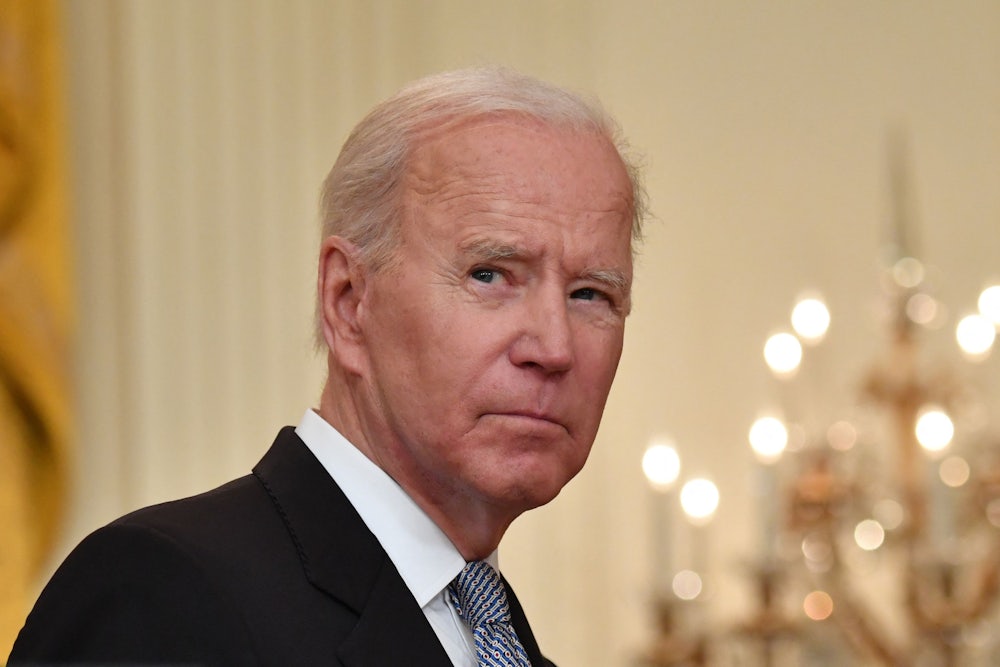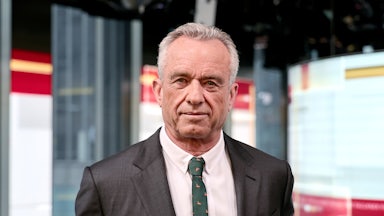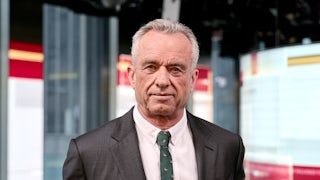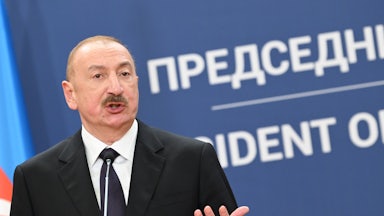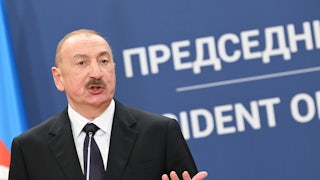On Sunday, BBC Russia editor Steve Rosenberg posted a picture of a car driving in Moscow on Twitter. “WTF IS GOING ON?” read a sticker covering most of its rear window. “Couldn’t have put it better myself,” Rosenberg wrote.
As the Columbia Journalism Review’s Jon Allsop wrote in a perceptive column on Monday, that was the question driving most of the Western media’s coverage of Yevgeny Prigozhin’s short-lived, chaotic mutiny, which began in eastern Ukraine on Friday evening and ended a day later, roughly 200 kilometers from Moscow. The view into the Kremlin’s inner workings was murky even before Russia invaded Ukraine in February 2022; it’s practically nonexistent now. Most of the Western media has been forced out of the country; Russian President Vladimir Putin destroyed most of his country’s independent media years ago. Everyone close to the situation—the Kremlin, the Russian army, the Wagner Group—lies constantly. A nuclear power was in chaos, but no one had any idea what was going on.
Two days after Prigozhin called off his mutiny (that, not coup, seems the most accurate description of what went down), no one still really knows what is going on. On Monday, Putin addressed Russia for the first time since the mutiny ended. There were rumors that big changes were afoot: Perhaps Sergei Shoigu—Russia’s minister of defense, Prigozhin’s enemy, and the person arguably blamed most for Russia’s failures in Ukraine—would be deposed; perhaps Putin would announce that he was annexing Belarus, which brokered the end of the mutiny and where Prigozhin will reportedly be exiled. Instead, Putin said next to nothing. He didn’t even mention Prigozhin by name.
The reasons for the mutiny remain opaque, though they certainly involve Prigozhin’s long-standing and intense feud with Russia’s military leadership and a plan to integrate his mercenaries into Russia’s regular army. One thing is clear, however: Putin’s hold on power has never been weaker. This is, in many ways, a tremendous accomplishment for the ways in which Ukraine and its Western allies—very much including the Biden administration—have responded to Putin’s illegal invasion. But it also presents a new phase of the ongoing crisis and a new challenge for Biden and his allies.
Publicly, Biden administration figures said little as Wagner mercenaries raced toward Russia’s capital. This cautious approach was understandable, given the information vacuum and the speed at which news was unfolding. Over the weekend, it was reported American intelligence suspected that Prigozhin was planning to challenge Russia’s military hierarchy—not particularly surprising, given his increasingly public criticism of its leaders—though officials were “surprised by” the mutiny’s “rapid escalation.” That too is understandable given that everyone else, very much including Prigozhin and Putin, seemed taken aback by the mercenary group’s rapid progress toward Moscow.
On Monday, Biden still urged caution. “It’s still too early to reach a definitive conclusion about where this is going,” he said at the White House in a statement denying American involvement in the mutiny. “The overall outcome of this remains to be seen.” This too is the sensible approach given how little we know about either what’s going on—it’s not clear, for instance, where exactly Prigozhin even is right now—or how stable the truce between Wagner and the Kremlin is. Prigozhin released his own statement Monday in which he continued attacking Russia’s top military officials, tapping into widespread public anger in the country toward the ongoing Ukraine quagmire, and continued to insist that the Wagner Group maintain its independence from the country’s Ministry of Defense. The crisis is not over—it’s just beginning.
Still, the Biden administration and its allies handled it the way that they largely have handled the war since its inception: with firmness and caution, but also a dash of opportunism. As Politico’s National Security newsletter reported on Monday: “It’s now clear how the United States and its European allies will deal with the fallout from the Wagner Group rebellion: Keep out of the fray publicly—but quietly encourage Ukraine to strike Russian positions harder while it’s down.”
The fallout is still unclear but may be profound. It could be a boon for Ukraine’s counteroffensive. Putin’s hold on power is undoubtedly less secure than it was a week ago. Even though Prigozhin’s rebellion ended quickly, it exposed a profound weakness in the Russian state: The fissures in Russia’s military—divided as it is between regular army and mercenaries like the Wagner Group—have been widening for months. The fact that Prighozhin’s troops could waltz unmolested toward Moscow also suggests a profound apathy among Russia’s leadership, its military, and its general populace.
The Biden administration’s quiet approach underscores its remarkably effective general strategy: to help Ukraine resist the Russian invasion however possible without inflaming tensions that could escalate the conflict. This weekend’s sober approach was an extension of the same one that has guided American and NATO strategies in Ukraine since Russian troops poured over its borders more than a year ago. It has been profoundly effective, both at preventing Russian gains and at weakening Putin’s hold on power. At the same time, it’s clear that the war is entering a dangerous new phase and that Putin’s vulnerability is also a risk. Russia was as close to civil war as it has been in decades, at least since the 1991 coup against Mikhail Gorbachev. Prigozhin, meanwhile, is hardly a liberalizing force; his main criticism of Russia’s military is that it has not done enough to win in Ukraine.
Despite that threat, the failed mutiny is also an opportunity to push back against the narrative Donald Trump and most of the GOP presidential field offer: that the war in Ukraine is an expensive quagmire and ending it on terms favorable to Putin would be preferable to letting it continue. Prigozhin’s uprising was brief, but it did reveal just how tenuous Putin’s hold on power is: There is no reason to believe that it will be strengthened anytime soon. While the idea that Russia is winning the war in Ukraine has been a talking point on the right for months, it’s abundantly clear that isn’t the case, even though it may be far off from losing it too.
Still, with Biden’s age a concern for many voters, his handling of the war in Ukraine and the uprising in Russia underscore his cautious and collaborative foreign policy’s effectiveness. It’s not necessarily the sexiest political argument, but it’s the most potent one that he and Democrats have heading into 2024.
